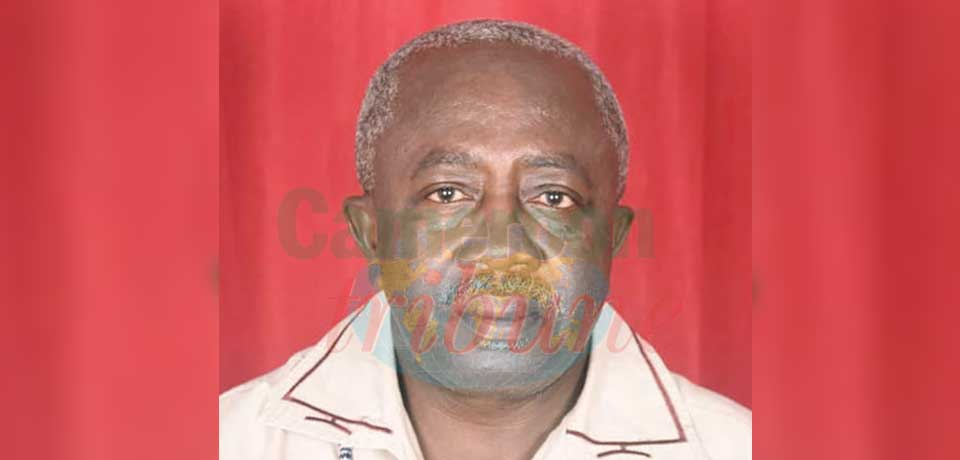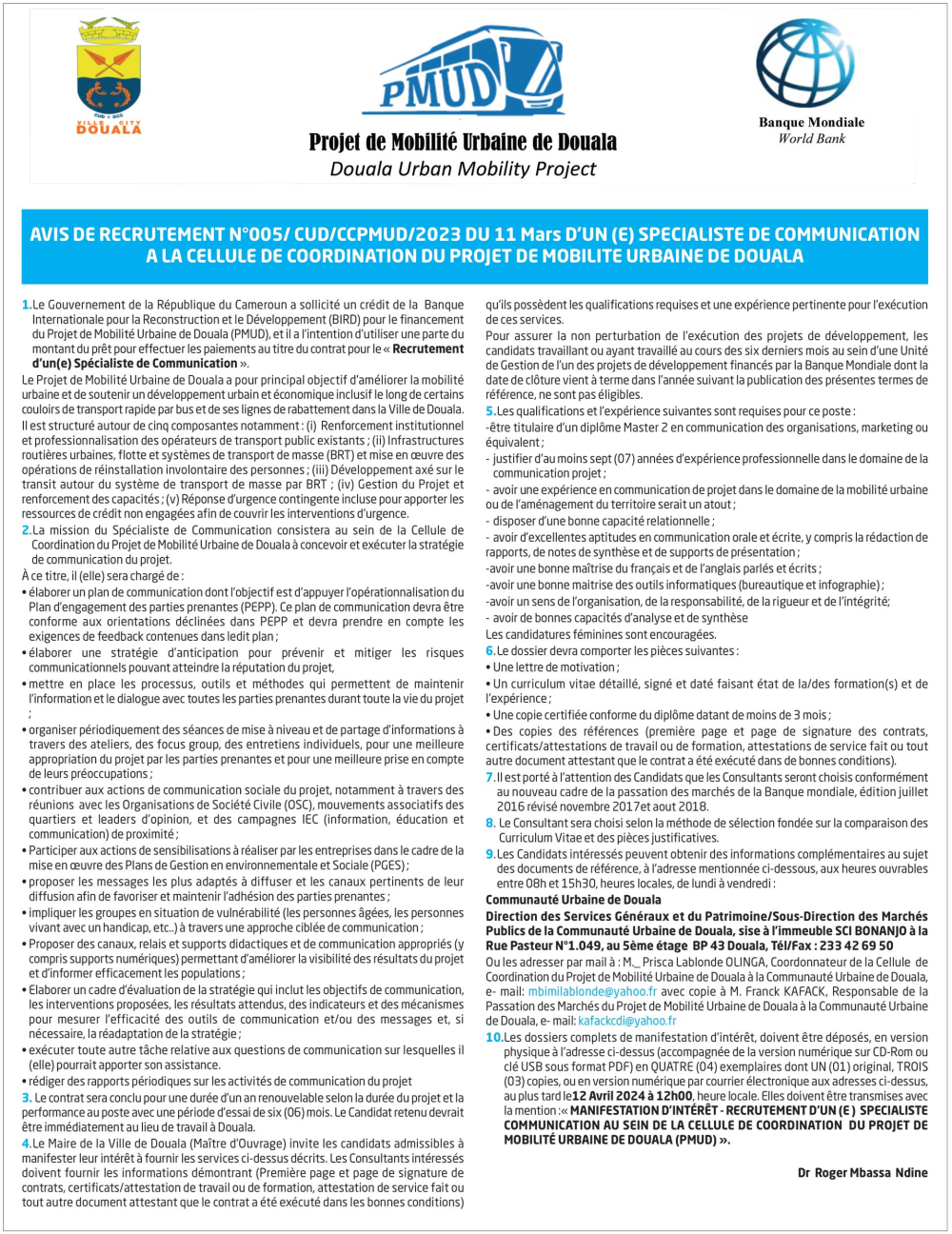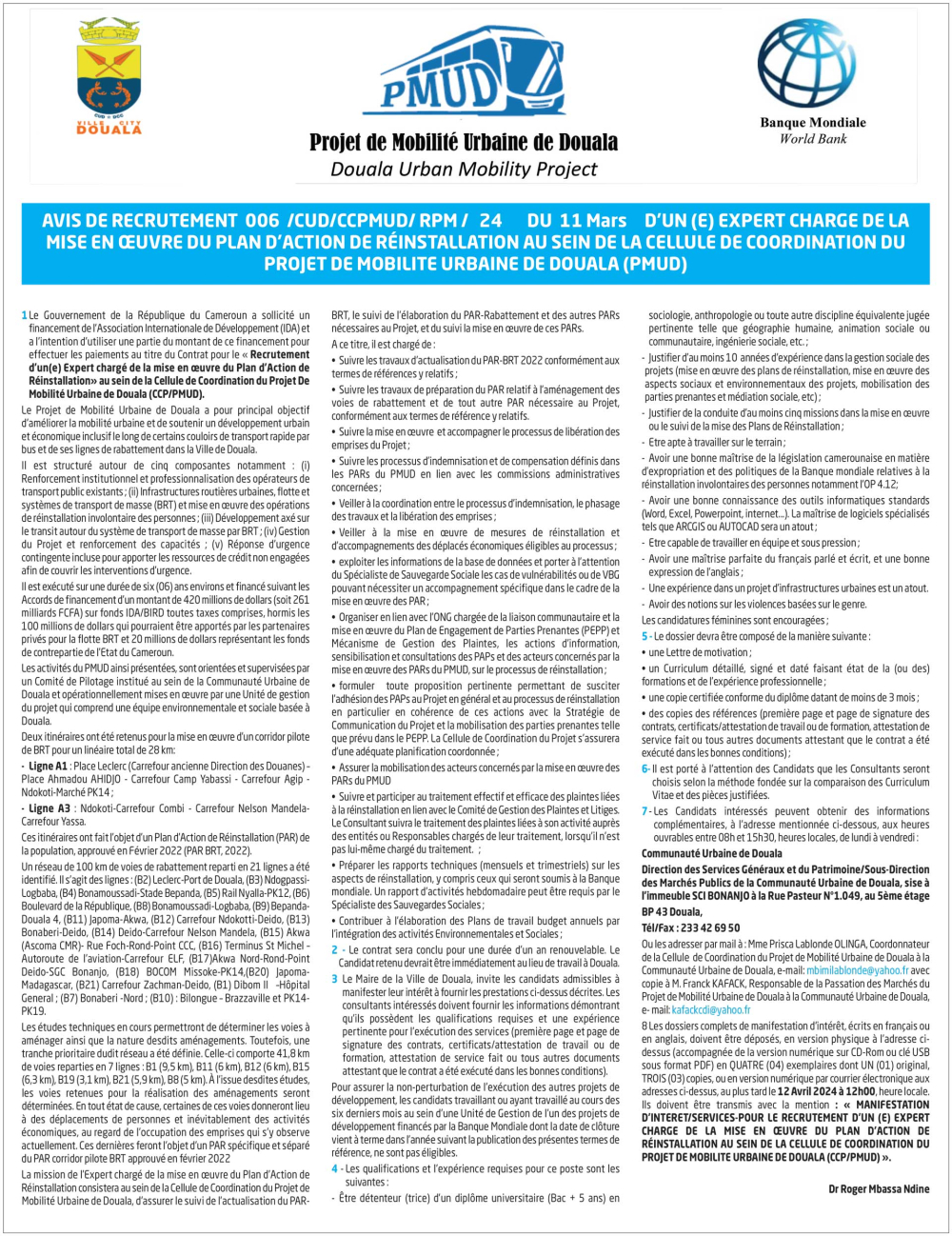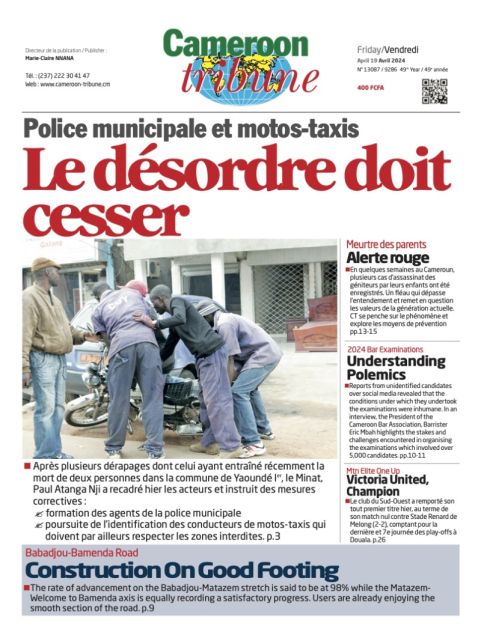Impact Of Coronavirus: These Children “Dying” A Second Death – In Ignominy!
- Par Kimeng Hilton
- 26 oct. 2020 11:36
- 0 Likes

Despite what government officials insist are non-negligible advances in managing COVID-19 in Cameroon, the plight of children who lose parents to the highly contagious disease tends to be under/overlooked by the public.
The Good Old Past!
Gone are those days when people hugged you – even for long seconds – as they condoled with you on the death of a close relation. Gone also are those days when people massively turned up for a funeral wake or the obsequies themselves. Beginning from the morgue to the church service (for Christians), and right to the graveside. In those days – that date back as recently as 2019; and even the early weeks of 2020 – the bereaved were sure of warm company from friends, colleagues and neighbours. Literally, for days on end. Which, inevitably, lightened the weight and pain of the loss of their loved ones.
Changed Times Indeed!
But since March 6, 2020 when Cameroon announced its first Coronavirus case, life has gradually turned into a daily nightmare for many people. Especially children who have lost a parent or both; or some other close relation. To the dreaded disease. Notwithstanding government’s awareness campaign – which is being ably supported by countless groups and organisations – COVID-19 continues to leave its imprint of foreboding in the psyche of adults and children alike.
Despite assurances and reassurances from experts that the viral disease’s mortality rate is less than 5 per cent of the total number of people infected. And therefore not as deadly as other diseases we are quite familiar with. A non-respecter of social standing, Coronavirus not only kills – and often quite fast – but also foists on children of afflicted families a mishmash of disbelief, stigma, anguish, desolation, embittered unforgiveness, ignominy …This is more so because seriously sick relatives are secluded from their loved ones. And their eventual death was initially almost immediately followed by a hastily-arranged burial in a lieu chosen by the authorities!
Softened Obsequies Guidelines
Taking note of the public uproar against such practice, the authorities softened the rules to allow family participation in the burial of their dead at a less-rushed pace. In the early days of the pandemic, corpses of victims were interred with such alacrity and sense of foreboding as if to say: “Good riddance to a wicked fellow!” All this, reportedly in a bid to avoid contamination of the living!
Wailing family members – including children and spouses – were kept at a safe distance. Also supposedly in their own interest! “As if the person who died of Coronavirus had suddenly become a bunch of Coronaviruses!” comments a Douala-based public health specialist. Because of this situation, understandably, Cameroonian-style obsequies for long belonged to the “distant” past. Until government introduced new guidelines for burying Coronavirus victims.
Imposed Seclusion
Notwithstanding, no one today “dares” to visit and condole with you when they hear your relation died of Coronavirus. This, in no small measure, only goes to aggravate the pain of the loss. Especially on children who find it hard to understand how their own society has changed – literally, overnight. For these children, therefore, it is a “second death” as they are abandoned to a life of anguish, desolation, ignominy…. By the very society that hitherto paid some attention to their cares. Whether you like it or not, death today in Cameroon from Coronavirus disease. Or supposedly from Coronavirus - is synonymous with ostracization of the wailing, surviving family members and their children.
Deprived Of Traditional Death, Burial Rites
But how did we get here? “In Cameroon, just like in Africa, the phenomenon of death has always been of great cultural significance. Death is so important in our traditions and cultures that the process of preparing a relative’s body for death and final burial has been codified in detail and is respected scrupulously,” explains Alfred Kongnyu Njamnshi, Founder and Executive Director of Brain Research Africa Initiative, BRAIN, and Professor of Neurology with the Faculty of Medicine and Biomedical Sciences, University of Yaounde I, Cameroon.
Illprepared For Coronavirus Paandemic
“The outbreak of Coronavirus disease or COVID-19 came as a surprise. And the associated mortality brought a lot of fear to the public, especially given that no specific and effective cure or prevention has yet been found. Furthermore, the extremely contagious nature of the disease led the health authorities and the whole Government to put in place strict measures to curb transmission so that the pandemic could be controlled.
… And added to the fear, confusion and social deprivation of traditional rites around COVID-19 deaths, I am not all surprised that this phenomenon has been associated with a lot of ignominy of bereaved families,” Prof. Njamnshi says.
Francois-Xavier Mbopi-Keou, a Professor of Laboratory Medicine, Microbiology and Infectious Diseases, also with the Faculty of Medicine and Biomedical Sciences, University of Yaounde I, attributes the situation to policy failure. “There have been serious deficiencies in our approach to the response, amongst, which are our failure to require a multidisciplinary expertise, particularly in the medical as well as in the social sciences.” Consequently, children and close relatives of those who die of COVID-19 “may be labelled, stereotyped, discriminated against..,” Mbopi-Keou notes.
Uncalled-For Scare Of Contamination
“Every contagious disease that results in isolation has a potential psychological impact because of rejection,” explains Col. Dr. Atchou Jonas Basseguin, Lecturer in Psychiatry with the Faculty of Medicine and Pharmaceutical Sciences, University of Douala, Cameroon; and Head of Psychiatry Service, Military Hospital, Yaounde, Cameroon.
“Transmitting Coronavirus through simple contact or sneezing reminds people of death instead of life. This produces a feeling of repulsion, aided by the media hype on possible contamination by coming in contact with the living or dead. While contamination might happen secretly, isolation on the other hand is the identification and declaration of the contagious and deadly nature of an individual infected with COVID-19. Even coming out of isolation or quarantine does not take away the agony of the disease’s contagiousness,” Col. Dr Basseguin clarifies.
Society Abandons Its Own!
Expectedly, the impact on affected children on society’s negative attitude to the death of the parent from Coronavirus is disastrous. “Their mental health is impacted and social cohesion weakened, resulting in social isolation. Other clinical conditions can occur as a result of this,” says Prof. Mbopi-Keou. “There is social withdrawal because of tagging by an uninformed or misinformed public. There is also aggressiveness on the part of the orphaned children in reaction to the use of unfair language to them. Such children suffer from anxiety as a result of an uncertain future after the death from COVID-19 of one or both of their parents,” Col. Basseguin points out.
Severe Stress, Adaptation Challenges
“They experience severe stress and challenges adapting to a new life without one or both of their parents. Especially as they were not allowed to properly mourn them according to traditionally-established norms. Thus, the funeral process was left uncompleted,” the Basseguin adds. He also mentions the strong possibility of these children taking to hard drugs, rise in juvenile delinquency, loss of psycho-affective bearings and the possible indifference of the authorities to this psychic disaster. Moreover, there is possibility of an increase in the short and longer term (six months and more) of cases of light, moderate and severe depression, Basseguin avers.
Prof. Njamnshi acknowledges that he is not aware of any research that has looked at this issue, but the possible impact of COVID-19 deaths on orphans can be speculated. He says the degree and extent of the impact will depend on the age and dependency ...
Cet article complet est réservé aux abonnés
Déjà abonné ? Identifiez-vous >
Accédez en illimité à Cameroon Tribune Digital à partir de 26250 FCFA
Je M'abonne1 minute suffit pour vous abonner à Cameroon Tribune Digital !
- Votre numéro spécial cameroon-tribune en version numérique
- Des encarts
- Des appels d'offres exclusives
- D'avant-première (accès 24h avant la publication)
- Des éditions consultables sur tous supports (smartphone, tablettes, PC)
















Commentaires